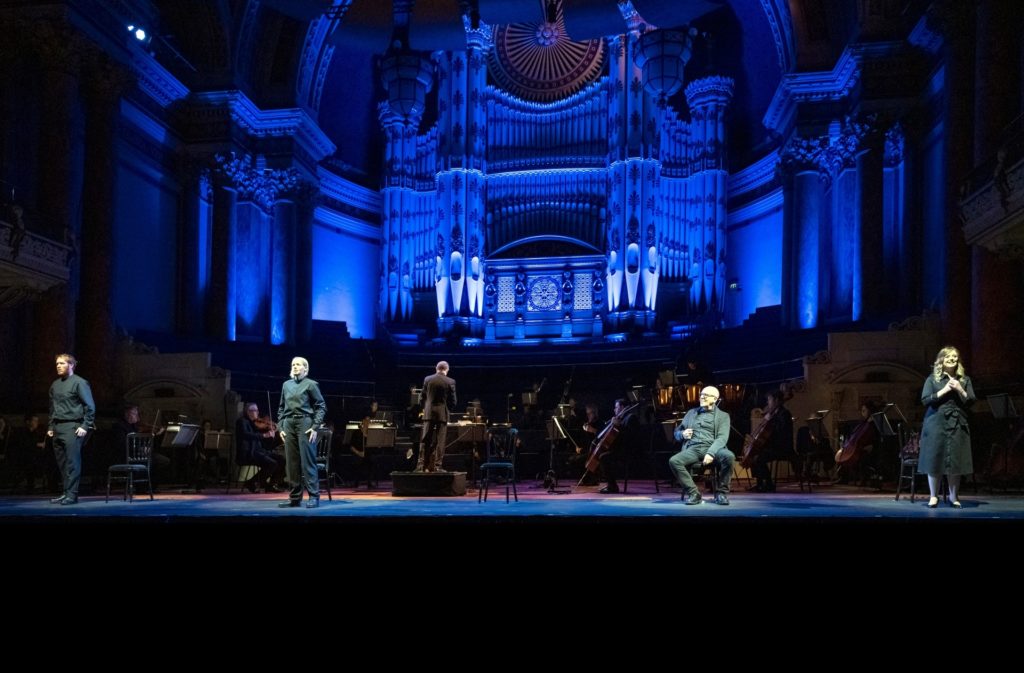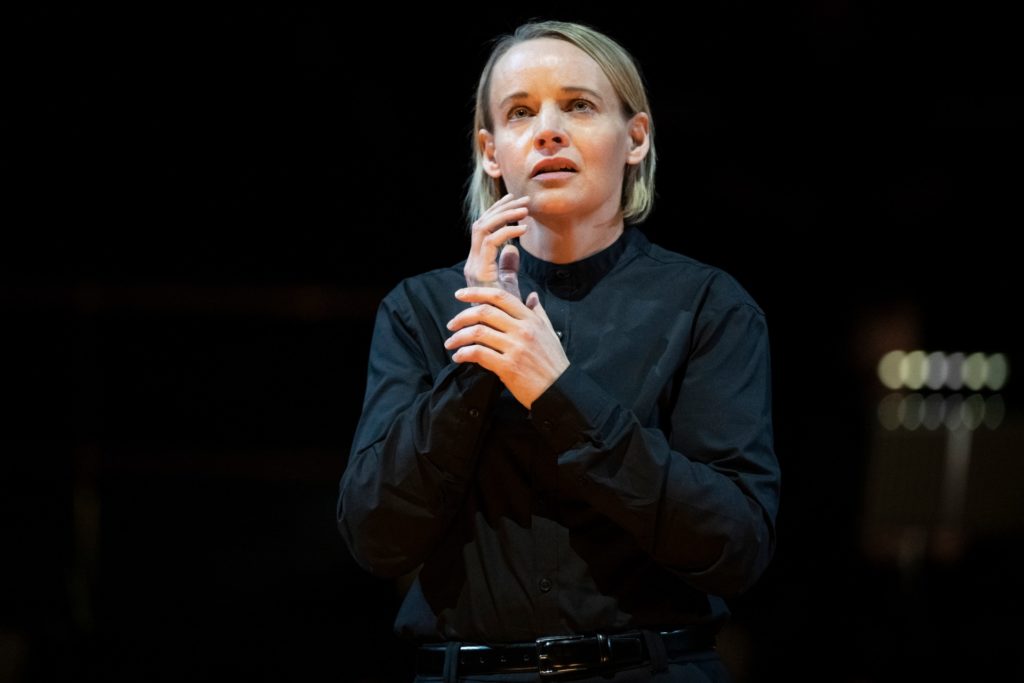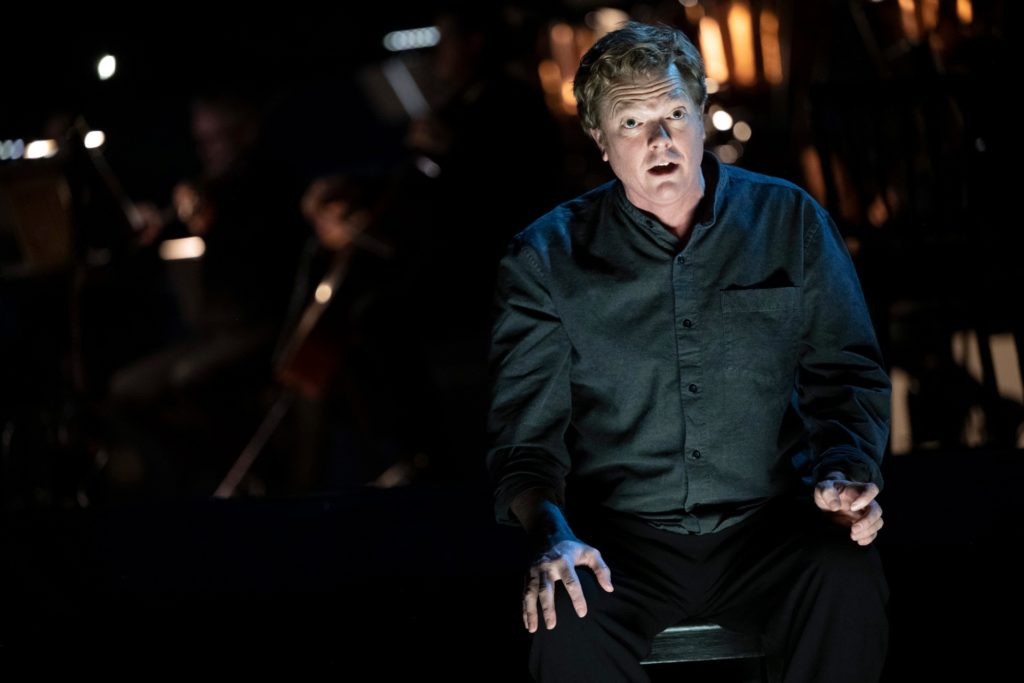
BEETHOVEN’S birthdate remains a mystery. But he was certainly baptised on December 17, 1770.
So, this concert staging took place on, or very near, the 250th anniversary of his birth. It could hardly have been a more thrilling occasion, even considering that it was compulsorily live-streamed, without the intended audience, as the pandemic bit harder in West Yorkshire.
There was from the start an extraordinarily upbeat flavour to the evening. It was as if every last ounce of the suppressed anger we were all feeling about the coronavirus was being channelled into sheer, bloody-minded determination to beat this enemy. No composer does anger better than Beethoven. Opera North was out to prove the point.
You could imagine different productions. But you would be hard put to find one in which every last one of the performers – soloists, chorus, orchestra, all under Mark Wigglesworth – was not merely on terrific form but prepared to shed sweat and tears in the cause. Call it wartime spirit, call it Yorkshire grit. In any case, the level was astounding given that so many of them had been like beached whales since early spring.
This was a bare-bones Fidelio, and all the better for that. In the pre-match interviews, both principals had questioned the weight of voices Beethoven had used at the 1805 premiere. Not that excuses were being made: both Rachel Nicholls as Leonore and Toby Spence as Florestan had plenty of heft when needed. But we have become inured to hearing something close to Wagnerian sopranos and heldentenors in these roles. They were not necessary here.
Social distancing had reduced the orchestra to Mozartian dimensions, with a chorus of only 24 wide-spaced across the bleachers behind. This was virtually Fidelio as chamber opera. But the town hall’s bright acoustic belied the small numbers. Not only were there no props or costumes, there was no dialogue either.

This meant the excision of the often-misleading exchanges in Act 1 as well as the Melodrama in Act 2. In their place we had brief English narrations devised by David Pountney and spoken in gently judicial tones by Matthew Stiff’s decisive Don Fernando.
Otherwise, Matthew Eberhardt’s production stuck to sung German, with the sole exception of Jacquino’s spoken ‘Der Minister Ist Hier!’. Pountney did not attempt to summarise the dialogue, merely to set each new scene. With the interval also eliminated, the spotlight was firmly focused on the drama. The result was undeniably gripping, Beethoven red in tooth and claw.
Rachel Nicholls has come a long way from her early music days. A relatively slight figure, she now produces astonishing power and intensity without loss of focus. There was righteous anger to burn at the start of ‘Abscheulicher!’ but it melted into a lovely spirituality at ‘Komm, Hoffnung’; the horns gave superb support.
Toby Spence, barefoot on a small dais slightly below and in front of the stage, can rarely have sung with such splendidly burnished tone, a picture of perseverance and resolution. Together they generated an ecstatic ‘O Namenlose Freude!’, all the more laudable given that an embrace was out of the question. They seemed to feed off each other’s joy.
Oliver Johnston delivered an urgent, concerned Jaquino, much more than the usual cipher, while Fflur Wyn – another whose voice has grown in recent years – made a warm Marzelline and Brindley Sherratt a genial, compliant Rocco.

Robert Hayward injected unrelenting menace into his Pizarro, to the point where we might have suspected it was all hot air. Such is the lot of the baddie.
The chorus, who had risen slowly and sporadically from their seats for their venture into the sunshine, drove the rest of their energy into a thunderous finale.
Wigglesworth’s decisive baton drew consistently tidy, transparent tone from his orchestra, all the more impressive since distancing must have made each player feel like a soloist.
Peter Maniura’s TV direction found a pleasing balance between close-up and ensemble, while we could forgive English subtitles that lapsed into hyperbole with ‘Let us celebrate all magnificent women’ at the close, hardly what the libretto tells us.
It was decidedly a new-look Fidelio, with drama winning out over decibels. Who would have thought that a rescue opera would be loosening our shackles two centuries on? We have Beethoven to thank.
Online on demand via www.operanorth.co.uk until January 4
Review by Martin Dreyer
